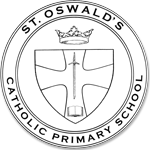Science
Curriculum Overview and Policy
Download: Science – Curriculum Overview 2023-2024 [PDF]
Download: Science – Progression of Skills Overview 2023-24 [PDF]
Download: Science – Vocabulary Progression 2023-2024 [PDF]
Download: Science Policy 2023-2024 [PDF]
Science – Curriculum Drivers
Language – A child’s understanding of scientific language will have a huge bearing on their ability to make progress. Research shows that one of the strongest factors affecting progress in science is how well pupils can read and understand written scientific texts. As a result, at St Oswald’s, we place a strong emphasis on the direct teaching of key scientific vocabulary as we want to give all our children the best opportunity to achieve in science. (Faith in Our Voice)
Diversity and Inclusion – We strive to ensure that barriers to learning in science are removed so that we can be as inclusive as possible. Science is at its best when it is collaborative and so we plan for lots of opportunities for children to work scientifically in groups. We endeavour to demonstrate to the children the diverse range of scientists who have impacted the world with their discoveries. (Faith in Others)
Resilience – We want our children to develop the ability to take risks and deal with different challenges during their science learning. We know that good science involves taking risks, making mistakes and learning from them. In this way, we want our pupils to embrace their potential to impact the wider world by thinking positively and having the confidence to ‘have a go’ in science. (Faith in Ourselves)
Enrichment – Science is a subject which is brimming with potential for enrichment. We aim to plan activities which allow pupils to develop their cultural capital. Science has the ability to engage and promote awe in children’s lives as they embrace new experiences of the world through external trips and exciting projects. (Faith in Our Journey)
Science – Intent
Our intent in St Oswald’s is for all pupils to have access to an exciting science curriculum that encourages and develops curiosity and discovery through the engagement of scientific enquiry and knowledge.
Science is a core subject and the content, progression and skill development from EYFS to Year 6 is taken from Development Matters and Early Learning Goals (EYFS) and The National Curriculum (2014). Our approach aims to give all children the opportunity to embed knowledge rapidly, enjoyably, efficiently and inclusively gaining the high order skills needed to discover the world around them and their role in it.
Our Science curriculum offers the opportunity to make cross curricular links and encompasses key elements of STEM including opportunities to maintain the freedom and flexibility for the children to gain knowledge through their own experience, enquiries and discoveries.
Our Science curriculum endeavours to provide children with learning experiences both inside and outside the classroom, including educational visits and visitors, supporting children to recognise the important role science plays in our lives and to be the scientists of the future.
In St Oswald’s, we are scientists; we encourage the children to be hands-on with their science lessons. We want our children to be independent learners and ‘be equipped with the scientific knowledge required to understand the uses and implications of science, today and for the future.’ (National Curriculum). Our intent is to promote a life-long love of science recognising the impact that humanity has on the world, instilling a recognition of science as an innovative, exciting and relevant career choice.
Science – Implementation
Science is a core subject and as such, in St Oswald’s Catholic Primary School, it is taught weekly
through a consistent approach using the Early Years Framework and the National Curriculum. All
staff endeavour to create a positive approach to science in which children are encouraged to have
high expectations for their engagement in science lessons. Our science implementation will include:
- Science is taught weekly for 60 minutes in KS1 and 90 minutes in KS2. The aim is for children
to ‘Know more, remember more.’ - We use an approach to planning and assessment which incorporates the ‘Big Question’ to
lead our learning at the start of each topic. This offers an important assessment opportunity
and can be used alongside prior learning knowledge to inform planning. At the end of each
topic, progress and knowledge acquired can then be assessed against the learning objectives
through a response to the original question. - In KS1, a topic based approach is used in terms of long term and medium term planning to
ensure that the children access a broad and balanced curriculum. Weekly planning will be
based around the six areas of learning. Each year group will cover a range of topics enabling
key skills and information to be delivered and developed. Reference will be made to both
the National Curriculum and the EYFS Curriculum documentation. This will identify learning
objectives. The long term planning will ensure that each curriculum area receives
appropriate coverage and the topics will be structured to ensure that pupils can build upon
prior knowledge and skills. There is a strong emphasis on the development of scientific
vocabulary. - In KS2 the National Curriculum is used in order to inform long term and medium term
planning. In each individual year there is a balance between learning new topics,
consolidation of previous learning and opportunities to further develop this learning.
Threaded throughout the teaching of science will always be an emphasis on using the
correct scientific vocabulary. - We strive to have a balance between a knowledge based approach and the delivery of
science based skills in a practical context – ‘Working Scientifically’. As a result, lessons may
take on a variety of different approaches depending on how the children will best achieve
the learning objectives. For example, this can range from open ended investigations to
research based learning via a range of texts or technology. - All class teachers will use their assessment of the pupils to plan for appropriate work and
skill development. Class teachers will carry out formative assessments throughout the year,
monitoring and evaluating pupil’s progress. This may be drawn from work in books, tests or
recordings. - This means that lessons will not just be solely focused on using writing skills but also having
broad and balanced approaches which include discussion, enquiry and the use of
questioning skills. - Cross curricular links are crucial for embedding the scientific knowledge and skills that
children are developing across all of their learning. As a result, all planning should highlight
lessons and objectives in which science learning crosses over with other subjects. In
addition to this, we will seek to promote the links between science, maths, D.T. and computing through an annual STEM week. The aim of this will be to provide children with a variety of learning opportunities in which skills and knowledge from all of these subjects inter-relate. - In our school we endeavour to deliver opportunities for children to recognise the important
role science takes in shaping the modern world and our future. - Finally, in response to Covid-19 and the subsequent lockdowns, we have adapted our
planning and the delivery of science over the previous two academic years. Missed topics
and objectives have been identified and then a clear plan put in place to make sure that they
are caught up. As a result, children can develop understanding without gaps in their
scientific knowledge. We will also continue to seek opportunities for children to engage in
using ‘Working Scientifically’ skills more frequently having missed out on numerous
opportunities over the pandemic.
HEP Curriculum – Haringey Learning Partnership
Following the successful introduction of the Opening Worlds curriculum for history and geography, we have taken up the option of trialling the HEP curriculum for science in Years 3 and 4. The focus of the HEP planning is on the scope, rigour, coherence and sequencing of the science curriculum. The planning maintains a strong emphasis on subject specific vocabulary and literacy skills which are so crucial to progress in all subjects. There are also frequent opportunities for scientific enquiry and the resources provided are engaging and knowledge rich. As a result, we believe that HEP can help our children to make even greater progress in science.
Get Up and Grow Award – Spring 2024
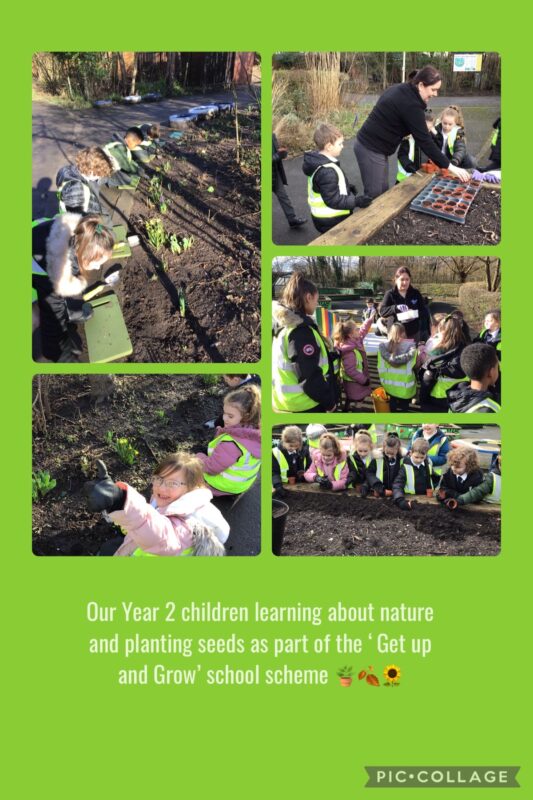
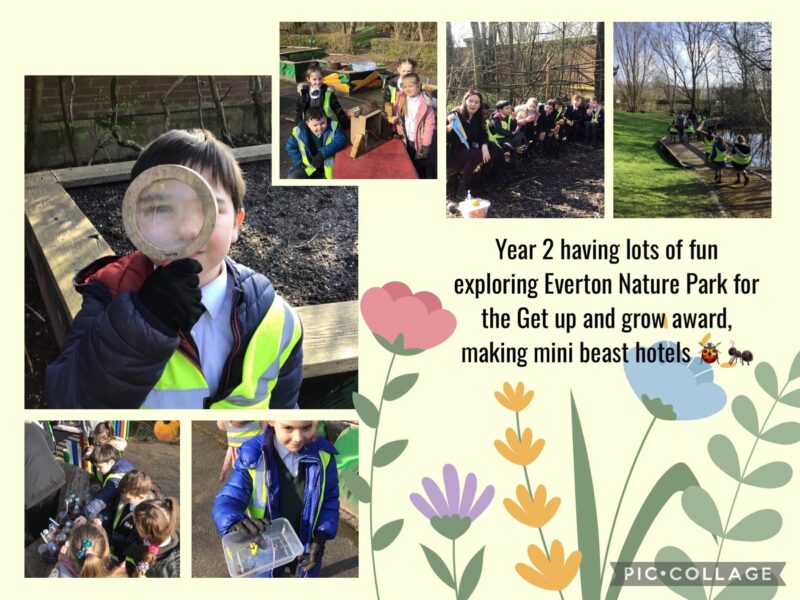
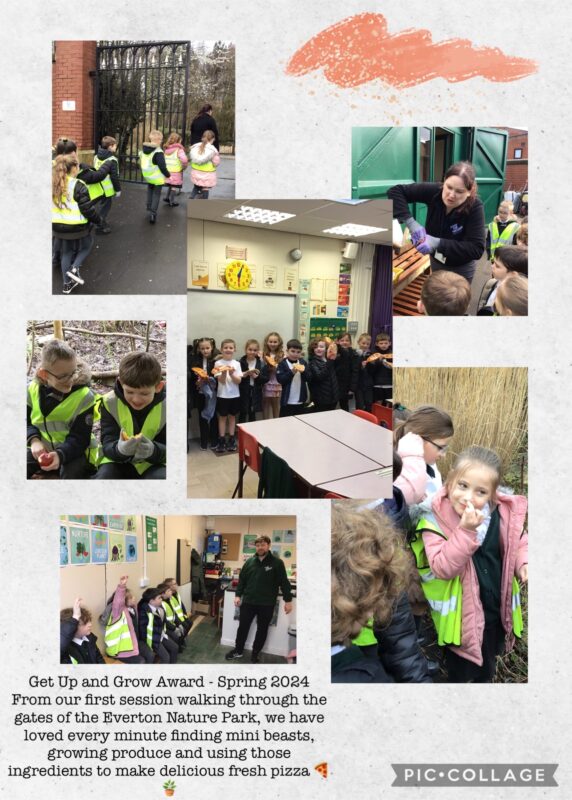
KS1 STEM club – Spring 2024
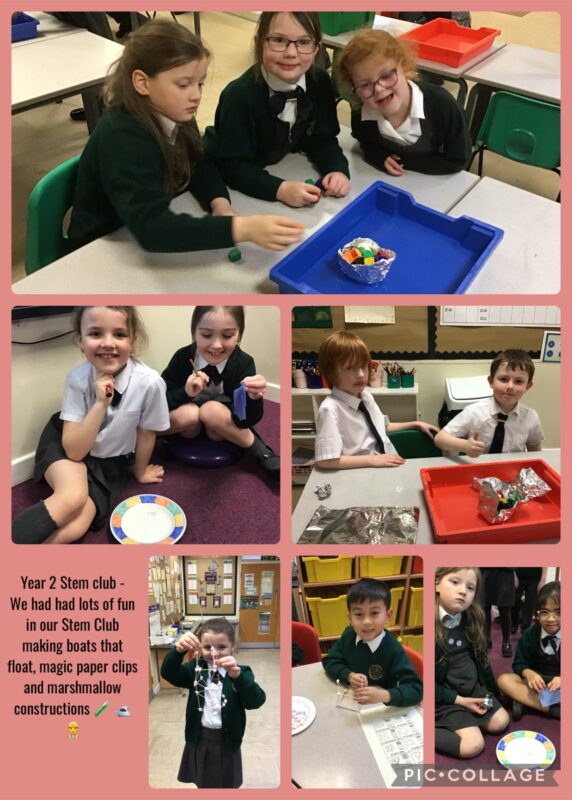
Additional Resources
Please find below a range of website suggestions that can be used to support learning in science for primary aged children.
Discovery Education/Espresso – Huge amount of free video clips, interactive games and learning tools:
External Link: http://www.discoveryeducation.co.uk/free-resources
BBC Bitesize Clips – Recently updated with interactive learning games, videos and quizzes:
External Link: http://www.bbc.co.uk/education/subjects/z2pfb9q
External Link: http://www.bbc.co.uk/education/highlights/curations/z9njqty
Channel4leaning ‘Science Essentials’ – Lots of fun interactive games for KS2:
External Link: http://www.channel4learning.com/apps26/learning/microsites/E/essentials/science/index.shtml
Science Museum in London (Online Science section) – Host of games, news and discoveries:
External Link: http://www.sciencemuseum.org.uk/online_science
How stuff works – Promotes scientific enquiry with videos, articles etc. about the world around us:
External Link: http://science.howstuffworks.com/
Discovery kids – Science based games, puzzles and activities:
External Link: http://discoverykids.com/
Today in Science History – Information about important scientific discoveries through history:
External Link: https://todayinsci.com/home.htm
WWF – Environmental resources to educate children about taking care of the planet and its life:
External Link: https://www.wwf.org.uk/get-involved/schools/resources
Amazing Space – Learn about astronomy, space, telescopes, stars, discoveries. Includes “Tonight’s Sky” constellations, deep sky objects and planets:
External Link: http://amazingspace.org/
24/7 Science – A variety of science experiments and activities, as well as games and citizen science opportunities:
External Link: http://static.lawrencehallofscience.org/kidsite/
